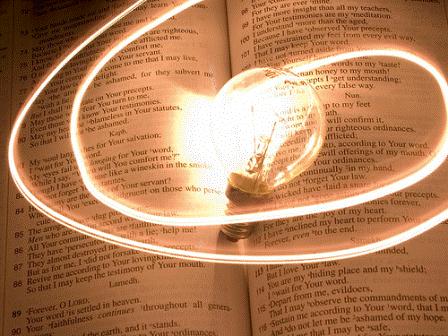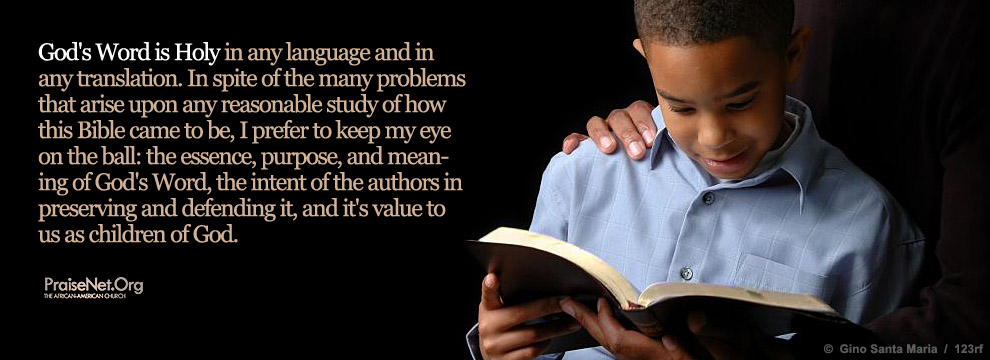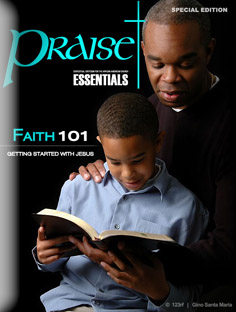The King & I
Is The Bible Reliable?
Do we toss it out?
By no means. But I believe the process that brought us the KJV
was no better protected than that which brought us the New King
James Version, the New American Standard Bible, or my
preference, the elegant New International Version. Begun in
Palos Heights, Illinois, in 1965, the NIV was the product of a
transdenominational group of over a hundred Bible scholars
working from Hebrew, Aramaic and Greek texts (excluding the
Latin Vulgate and Masoretic Text, which were considered in the
translation of the KJV). The Holy Bible, New International
Version began as selected books of the New Testament and Psalms
in 1973, and is now a highly respected rival to the KJV,
although few people in my church accept it. They've got to hear
a “thou” to get with the program.
Is any Bible perfect? I suppose that depends on your definition
of “perfect.” Noted Theologian Charles C. Ryrie writes:
Basic Theology
A Popular Systematic Guide To Understanding Biblical Truth
by Charles C. Ryrie
“...the inerrancy of the Bible means simply that the Bible tells
the truth. Truth can and does include approximations, free
quotations, language of appearances, and different accounts of
the same event as long as these do not contradict.” He
concludes, “The Bible is inerrant in that it tells the Truth,
and it does so without error in all parts and with all its
words.”
But, Ryrie also asserts:
“It is essential to remember that the Bible is self-authenticating since its books were breathed out by God (2 Tim. 3:16). In other words, the books were canonical the moment they were written.”
To me, this “self-authenticating” argument opens the door to head-in-sand rhetorical stonewalling. Maybe I'm missing Ryrie's point, here, but he makes Christianity out to be a self-reinforcing delusion by side-stepping issues of authenticity and accountability.

So, what are we to do?
If our belief is based on the Bible, and the Bible could mean
almost anything, given a minimum of fourteen centuries of
handwritten transcription and another six or so of
hands-raised-voting on the meaning and relevance of scripture,
how do we now find God in any of this? How do we find the
incorruptible amid the corruptible? The Truth in the midst of
everybody's opinion? Bottom line: can we trust this thing, this
book?
I think the trick is to keep our eye on the ball: to figure out
what we want from all of this. To find a personal space with Who
and What we consider God. To take comfort and meaning and
purpose from the intent of scripture: to connect us with
something greater than ourselves. Do we excuse shoddy Biblical
research? I hope not. I hope we are reasonable and prudent and
prayerful, while not getting so hung up on minutiae and holding
out for impossible standards of authenticity.
But, if God be God, couldn't He have protected His Holy Word so
there is a valid chain of custody back to the Apostles? Of
course He could. Why didn't He? I dunno, you have to ask Him. I
tend to believe, perhaps like some of the men at the Synod of
Carthage, that the intent of the work— in that it amplifies and
enhances Scripture without contradiction— is a valid
consideration. So I don't really worry about who wrote John, but
take comfort in some of the greatest and most profound
statements about Jesus ever committed to writing (while decrying
John's frequently anti-Semitic tone; a tone that makes it seem
unlikely the book was written by a Jew— John, the brother of
Jesus).
Does having faith in a Christian God, in spite of the problems
with textual criticism make me a loon? Probably. As I've said in
other rants, I believe faith is a choice. A choice we make
sometimes in direct conflict with our intellect, and our need
for rational, detailed data and encyclopedic reference on Why
This Is True.
At the end of the day, it may be impossible for many
intellectuals (of which I am certainly not one) to find God, or
to have a thriving spiritual life and relationship with a higher
power. But, perhaps, at the very end of intellect and reason
there is a precipice beyond which no rational thought exists.
Perhaps faith involves leaping into that abyss and, in so doing,
elevating our thinking beyond what we can prove on paper or
websites. Without dismissing intellect and reason, we can evolve
both and, in so doing, find that small piece of ourselves that
we've been missing.
My Nameless Friend the theological scholar put it this way:
Anonymous “The thing to remember is that most people don't put
any thought into their religion at all. And the people who do,
generally stop believing. Religion is by nature irrational
absent some variety of what is generally termed “mystical
experience.” St. Paul experienced such a phenomenon and went a
bit nuts. (Or he just went a bit nuts if you don't believe his
account of what actually happened.) The Apostles and St. Francis
and Muhammad had mystical experiences. Otherwise it becomes a
question for philosophers, and after the Cartesian Dilemma,
philosophy is not that easy a hurdle to clear “I believe in God
the same way I belief in water and television sets and my
mother. He's a concrete reality which is just there all the
time. The question of God's existence doesn't even make sense to
me at some level. I see it as an academic question, like proving
the existence of the self. (Of course, Descartes demolished the
self...)"
“I believe in God the way I believe in water.” I like
that. Maybe I could have saved us all a few hundred kilobytes of
bandwidth by just having said that.
Christopher J. Priest
3 March 2002
editor@praisenet.org
TOP OF PAGE






